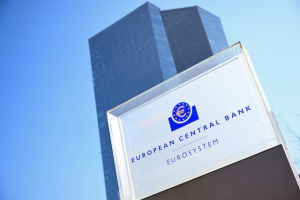Norway's central bank held its policy interest rate unchanged at a 16-year high of 4.50% on Thursday, as expected, and said it now planned to cut rates three times in 2025, down from four cuts seen previously.
"The committee judges that a restrictive monetary policy is still needed to stabilise inflation around target, but that the time to begin easing monetary policy is soon approaching," Norges Bank Governor Ida Wolden Bache said in a statement.
"Based on the committee's current assessment of the outlook, the policy rate will most likely be reduced in March 2025," Norges Bank said.
The policy rate is now expected to decline to 3.75% by the end of 2025, Bache said. Norges Bank, and analysts in a Reuters poll, had earlier forecast a decline to 3.50% next year.
The Norwegian crown weakened to 11.79 against the euro at 0958 GMT, from 11.76 just before the announcement.
The Norwegian monetary policy stance contrasts with other Western central banks, most of which started cutting rates already this year as growth slowed and inflation eased from the highs of recent years.
Norway's economy has weathered relatively high interest rates, economists said, helped by rising business investments and wages, increased government spending and currency depreciation.
Norges Bank said the economy was holding up better than previously projected, while inflation pressures were more subdued. Still, the outlook was unclear, it added.
"There is substantial uncertainty about the outlook for both the global and Norwegian economy," it said.
The 28 participants in a Dec. 11-16 Reuters poll had unanimously predicted the central bank would keep rates on hold this week and almost all said it would start cutting in the first quarter of 2025.
Brokers Nordea said the central bank appeared to be concerned that by keeping rates on hold for too long, it could constrict the economy.
"The committee is still fearing that unemployment could rise too much if they do not cut rates soon," Nordea said.
Norges Bank highlighted the risk of a trade war between the United States and China as one of the issues it discussed, saying it "was concerned with the risk of an increase in international trade barriers".
"Higher tariffs will likely dampen global growth, but the implications for price prospects in Norway are uncertain," the bank said.
The U.S. Federal Reserve on Wednesday cut rates by a quarter percentage point, as expected, but said more reductions hinge on further progress in lowering persistent inflation.
The Nordic country's core inflation accelerated in November to 3% year-on-year from 2.7% in October, above the central bank's 2% target.
The Swedish central bank earlier on Thursday cut rates by 25 basis points, in line with expectations, and said it may again ease policy in the first half of 2025.
In Britain, the Bank of England is due to report the outcome of its latest rate meeting later on Thursday, with economists expecting no rate change.













